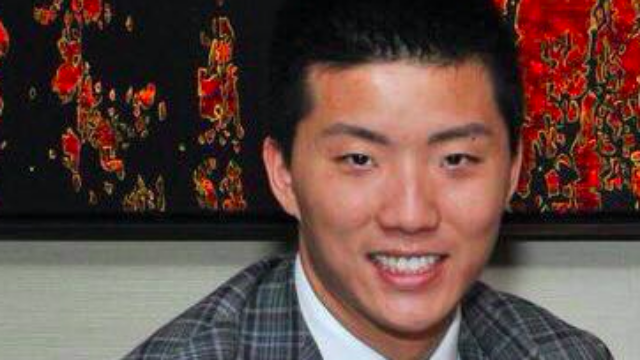Francis Duan (m12): ‘in 10 Years Time, Chinese Luxury Brands Will Compete With the Western Fashion Houses’
Louis Vuitton in Shanghai, Christian Dior in Taipei and Singapore, Moynat and Chanel in Hong Kong… Francis Duan (M12) has been exploring the Chinese luxury market for a decade. He shares his journey with us.
ESSEC Alumni: You were born in Paris and are of Franco-Chinese descent. Why did you leave France for China?
Francis Duan: It all started in 2008, when I worked as an interpreter at the Beijing Olympic Games. I noticed the country’s power and economic attractiveness as well as the optimism of its people. It appealed to me.
EA: You were particularly attracted to the Chinese luxury market. Why?
F. Duan: I am extremely interested in the promotion and influence of French know-how. Working in the luxury industry makes me feel like I’m an ambassador of the French culture in China.
EA: Did the Chinese luxury market surprise you?
F. Duan: The most surprising thing is that the Chinese are generally very frugal, but they make an exception for luxury goods. We have clients who save for 6 months to buy a bag. While this would seem extreme in France, it’s a source of pride in China—a symbol of social and economic success. And Chinese consumers are confident in the future: they are convinced that they will earn more tomorrow, so they let loose to a greater extent.
EA: What potential does the Chinese luxury market have?
F. Duan: Just one figure: it’s estimated that by 2024, 50% of luxury consumers will be Chinese. Even in Paris, Chinese tourists dominate sales!
EA: You’ve worked in several Chinese cities. Are the stakes the same for luxury brands from one city to another?
F. Duan: They’re quite different. In Taipei, the market is very competitive and concentrated around a hundred extremely wealthy industrial families that have reached maturity. In Singapore, the challenge is staffing: sales jobs are not highly valued, so there’s a lack of talent. Shanghai is more fashionable, younger and trendier, while Beijing is home to more wealthy people who are less initiated and less sophisticated. Hong Kong is flourishing because there is no tax, and lower prices are attracting those from mainland China.
EA: Are there any Chinese luxury brands?
F. Duan: Young Chinese designers are beginning to emerge, as are self-proclaimed Chinese-style luxury brands. They are doing well but are not yet able to export, for three reasons. First: the cultural revolution has destroyed much of the country’s heritage and know-how, in ceramics, jade, lacquer, etc. Second: new entrants tend to place too much emphasis on an immediate return on investment instead of building a long-term brand image. Third: until now, the Chinese themselves have had a negative attitude towards products that are made in China.
EA: Is that changing?
F. Duan: Quite rapidly! We remain a niche market at the moment, but in 10 to 15 years, Chinese luxury brands will be a real alternative to Western fashion houses and will have gained international status.
EA: Does your dual culture help you bridge the gap between French brands and the Chinese market?
F. Duan: Having experienced both cultures helps me grasp certain nuances, such as differences vis-à-vis money and art. It also makes me more open-minded in intercultural contexts, which is invaluable. I also speak and write Mandarin, which is obviously an asset.
EA: Do you plan to return to France one day?
F. Duan: I will return for the country’s quality of life, education, access to culture and humanist values. France is unique in the world in these respects, and you come to better appreciate this uniqueness when you’ve lived abroad.
EA: In terms of your career in China, were ESSEC and the alumni network helpful to you?
F. Duan: I’ve received help from graduates of all programmes! I’m especially grateful to Nicolas Morineaux (E99), who has been my mentor since my time at ESSEC BBA. I also give back: I participate in every ESSEC event, and I respond to every student request.
EA: What advice would you give to alumni who are looking to work in China?
F. Duan: Be open to change. Settling in China doesn’t mean implementing your practices in a foreign environment. If you do that, you won’t learn anything and you’ll alienate your local colleagues. You have to integrate, not impose your own value system.
Interview by Louis Armengaud Wurmser (E10), Content Manager at ESSEC Alumni
Want to read more? Please join ESSEC Alumni for us to be able to bring other quality contents about the community to you.

Comments0
Please log in to see or add a comment
Suggested Articles




